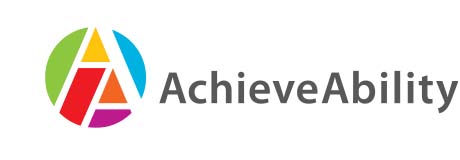Review of event BBC North
THINK…BEYOND THE BOX – NEURODIVERSITY AT WORK- MEDIACITYUK SALFORD- FEBRUARY 12TH *
BBC North Careers
On Behalf of AchieveAbility; Heather Symonds attended the BBC North session.
Summary of day
‘BBC 2014 Research Project aimed at ascertaining awareness and attitudes towards workers with hidden cognitive conditions. Accepting 1in 25 people process things differently: looking at recruitment/support/managing employees.’
Findings presented using formal presentations on the day. -Panel and later Focus Group of invited experts led by BBC.
Panel members included Deputy Chair from BDA- Lord Northbrook and Head of Oakwood Academy, A.Nicholson (School for 11-18 under complex differences remit) and reps from Employment and Training together with BBC Disability personnel.
The presentations were quite diverse; there was a good news flagship from Oakwood School regarding pupil suitability for work and IT capabilities or interactive multimedia. A suggestion of ‘loner’ AS able to undertake intensive computer posts but needed support to be routinised. Support and mentoring models were offered. BBC personnel talked about their support for employees, strategies of transport and environment, which seemed on request and Access to work related. Lord Northbrook, as a dyslexic, he made the major point of requesting short emails in good font no more than 4 lines or he did not respond as an example of work practice. The feeling seemed to be once aware there was support and the units at BBC would do their best and welcomed those with cognitive differences it was more staff needed to be aware.
The response from the floor was varied from underscoring the notions of support by BBC and those who felt it was patronising and largely negative portrayals of neurodiversity, this was emphasised by an industrialist with dyslexia and ADHD. Little was made of the material from several years ago at Canary Wharf by the BDA on the fact that 95% of Britain’s’ entrepreneurs are dyslexic and that the loss was greater than suggested.
A reality check on BBC progress -20,000 Employees and only 4% declared a disability of any sort.
Questions from the floor revealed some figures that were typical of poor student identification in HE; 16 years previously so quite late to greater awareness.
The half hour focus group was with a small group of BBC senior staff and representatives from external organisations, including Achievability.
The aim originally was to get a few recommendations and we did produce some recommendations regarding support for those with a specific neurodiversity but the umbrella is too large to be specific which the expert groups agreed upon.
Feedback from the day was reproduced as stats based on an online format BBC feedback (such as a Monkey survey):
23% of 28% who had previously had limited awareness would seek to improve awareness, leaving 5% who wouldn’t bother. Only 3% of this group audience would commit to actually employing someone who was neurodiverse. The neurodiverse invitees were already cognisant of the BBC position on awareness and the employment.
Suggestions in the focus group:
1.Using 360 Appraisals to include equal opps action taken that year (Inc. neurodiversity focus).
2.Use HE research and work undertaken to include all funded projects as a basis for change.
My summary was that that best research needed to be engaged with and that rather than a definition of neurodiversity as hidden cognitive difference it is preferable for ‘neurodiversity to be described as a concept where neurological differences are to be recognised and respected’.
Best result of the day:
BBC interactive and digital specialists produce better assistive style technology than currently on offer from DSA style companies, including sound headphones that deafened all noise but conversation.
Recommendation: They should promote these and successes in their sector.
Recommendation: Perhaps defining inclusion would have been a better starting point for the unaware.
Summary produced by Heather Symonds
Distributed by Margaret Burgin
Future Skills Manager BBC
March 2015
